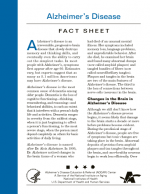Mol Psychiatry. 2015 Sep 1. doi: 10.1038/mp.2015.129. [Epub ahead of print]
Midlife adiposity predicts earlier onset of Alzheimer’s dementia, neuropathology and presymptomatic cerebral amyloid accumulation.
Chuang YF1,2,3, An Y4, Bilgel M4,5, Wong DF6,7, Troncoso JC8, O’Brien RJ9, Breitner JC10, Ferruci L4, Resnick SM4, Thambisetty M1.
Abstract
Understanding how midlife risk factors influence age at onset (AAO) of Alzheimer’s disease (AD) may provide clues to delay disease expression. Although midlife adiposity predicts increased incidence of AD, it is unclear whether it affects AAO and severity of Alzheimer’s neuropathology.
Using a prospective population-based cohort, Baltimore Longitudinal Study of Aging (BLSA), this study aims to examine the relationships between midlife body mass index (BMI) and (1) AAO of AD (2) severity of Alzheimer’s neuropathology and (3) fibrillar brain amyloid deposition during aging.
We analyzed data on 1394 cognitively normal individuals at baseline (8643 visits; average follow-up interval 13.9 years), among whom 142 participants developed incident AD.
In two subsamples of BLSA, 191 participants underwent autopsy and neuropathological assessment, and 75 non-demented individuals underwent brain amyloid imaging. Midlife adiposity was derived from BMI data at 50 years of age.
We find that each unit increase in midlife BMI predicts earlier onset of AD by 6.7 months (P=0.013). Higher midlife BMI was associated with greater Braak neurofibrillary but not CERAD (Consortium to Establish a Registry for Alzheimer’s Disease) neuritic plaque scores at autopsy overall.
Associations between midlife BMI and brain amyloid burden approached statistical significance. Thus, higher midlife BMI was also associated with greater fibrillar amyloid measured by global mean cortical distribution volume ratio (P=0.075) and within the precuneus (left, P=0.061; right, P=0.079).
In conclusion, midlife overweight predicts earlier onset of AD and greater burden of Alzheimer’s neuropathology. A healthy BMI at midlife may delay the onset of AD.

http://www.nature.com/mp/journal/vaop/ncurrent/suppinfo/mp2015129s1.html
Molecular Psychiatry advance online publication, 1 September 2015; doi:10.1038/mp.2015.129.
© 2015 Macmillan Publishers Limited. All Rights Reserved.


















